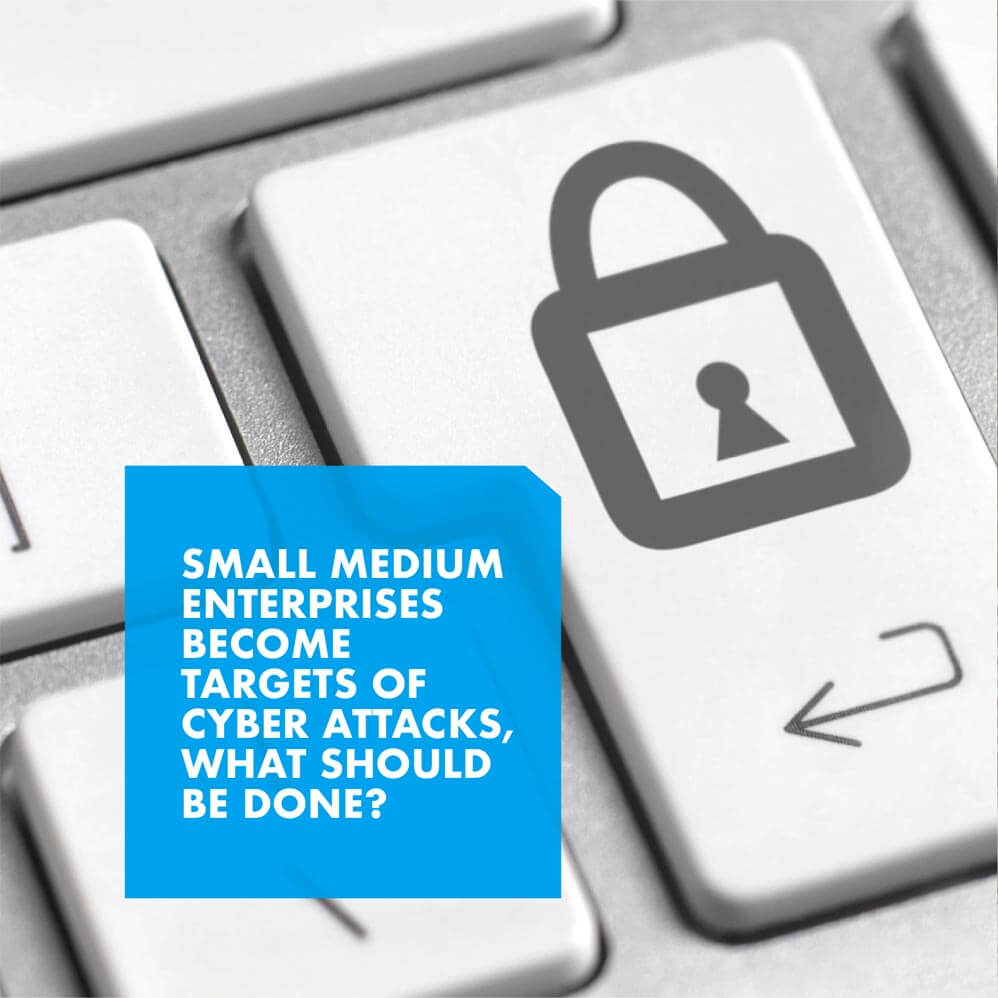
Small Medium Enterprises Become Targets of Cyber Attacks, What Should be Done?
Digitalization can remove business barriers for small and medium enterprises (SMEs) and have an impact on the country’s economic growth. However, this digitization also increases the risk of cyber attacks on SMEs.
The world economy always undergoes a revolution from time to time. In the past, the economy was controlled by landowners. Until then there was an industrial revolution that caused capital owners to control more of the economy.
Currently, the digital revolution is again making a new order in the economy. “Whoever masters technology, will have the opportunity to rule the world,” said the Intelligence Studies Lecturer at the University of Indonesia and the KPK Intelligence Lecturer, Yudha Fernando, as a speaker at the SGU Digital Clinic with the theme: “Cyber Resilience In Small and Medium Enterprise in Competitive Era”. This Digital Clinic event is organized by the Master of Information Technology, Swiss German University.
Yudha, who is an Alumni of the SGU Master of Information Technology, explained several changes in the economic sector that occurred as a result of the digital revolution including:
- Man
Technology changed the relationship that was originally a company with workers, now a company with partners. For example, Grab partners with the driver. Likewise with SMEs that partner with e-commerce platforms such as Shopee or Tokopedia.
- Machines
In the past, we had to have all the means of production to make a business. Today, technology allows a person to run his business through a superteam. The trick is to build networks with other entrepreneurs who can complete the entire production process.
- Money
The capital barrier is getting smaller with the presence of technology. For example, a chef today does not need to rent a shop to open a restaurant. He can work with Gofood to market his dishes.
According to Deloitte Access Economics, encouraging digital engagement in SMEs can increase Indonesia’s annual economic growth by 2%. However, currently, there are still many SMEs that have not transformed digitally.
Still based on the same data source, currently, only 9 percent of SMEs in Indonesia have made advanced online sales using digital analysis and cloud systems. The remaining 18 percent use intermediate-level online, 37 percent basic online without interaction, and 36 percent do not use digital at all.
Yudha said that the government is currently trying to encourage the digitalization of SMEs. However, this digital transformation also causes the potential for cyberattacks on SMEs to increase. The cyberattack, for example, is aimed at e-commerce platforms that accommodate SMEs. As many as 37 percent of SMEs in Southeast Asia claim to have experienced cyber-attacks based on a survey conducted by Kaspersky in 2020.
“The cyberattack is not caused by trade competition between SMEs, but between the old system (which prioritizes capital) and the new system, ”he said.
Yudha said that the government must take a role to protect cyber-attacks on these SMEs, both through the Ministry of Communication and Information Technology and the National Cyber and Crypto Agency (BSSN). The trick is to facilitate SME infrastructure equipped with strong cybersecurity.
The government can also create a system that places large-capital companies not as SME competitors but as partners. This system is already underway in Taiwan. “For example, an automotive company, there are several spare parts that are done by SME partners,” he said.
Head of the Master of Information and Technology Study Program at Swiss German University (MIT SGU), Eka Budiarto, said digital transformation is currently a must, not only for big companies but also for small-medium ones. Even it is now becoming a matter of survival.
Read More:
However, digital transformation is not simple. Many factors determine the success of digital transformation, including cyber resilience. On the other hand, SMEs do not have the resources to take care of the cyber resilience aspect by themselves.
That is why he agreed with the speaker’s idea that big digital companies or e-commerce platform can act as a gateway for small-medium companies for building cyber resilience infrastructure. “This is a good idea, and technologically feasible, but needs a solid legal foundation, which unfortunately is still lacking in Indonesia. For example, as far as I know, there is still no data privacy protection law in Indonesia,” said Eka.
Anyway, cyber resilience also requires a strategy so that it can be more effective. That is why we need a digital transformation architect as a cyber resilience planner. Not only that, the digital transformation architect can align business goals and available technologies. Without digital transformation architects, the digital transformation can be just a copy-and-paste operation, which might not deliver the hoped added values to the company, because what is good for other companies is not necessarily good for our institution.
Master of Information Technology at SGU sees this as an urgent need. Therefore has the vision of educating digital transformation architects for a better digital Indonesia.
About SGU
SWISS GERMAN UNIVERSITY (SGU) is an international university in Indonesia, was established in 2000 as a joint effort between Indonesia, Germany, Switzerland, and Austria. We are the pioneer in offering international curricula in Indonesia.
Qualified students can graduate with a Double Degree from Indonesia and Germany, which SGU provides in cooperation with partner universities; surely a valuable tool for your future careers. Ever since its establishment, SGU has been dedicated to delivering quality education in line with international standards and aims to develop skilled professionals who meet the demands of the industry. To achieve its objectives, SGU offers quality-oriented learning through 12 Bachelor’s Degree Programs and 4 Master’s Degree Programs ranging from Engineering, Information Technology, and Business to Life Sciences and Social Sciences. Furthermore, with small class sizes, and with English as the medium of instruction, you can look forward to pursuing your tertiary education and degree with full confidence.***
Back